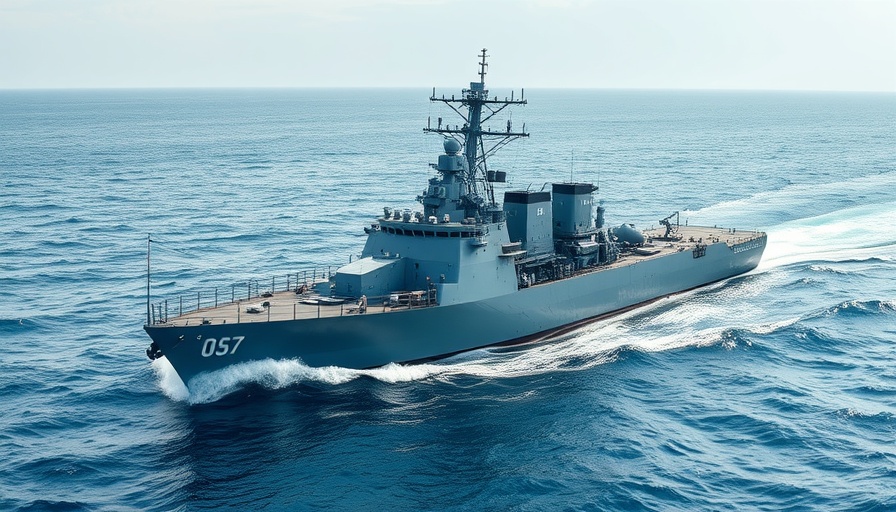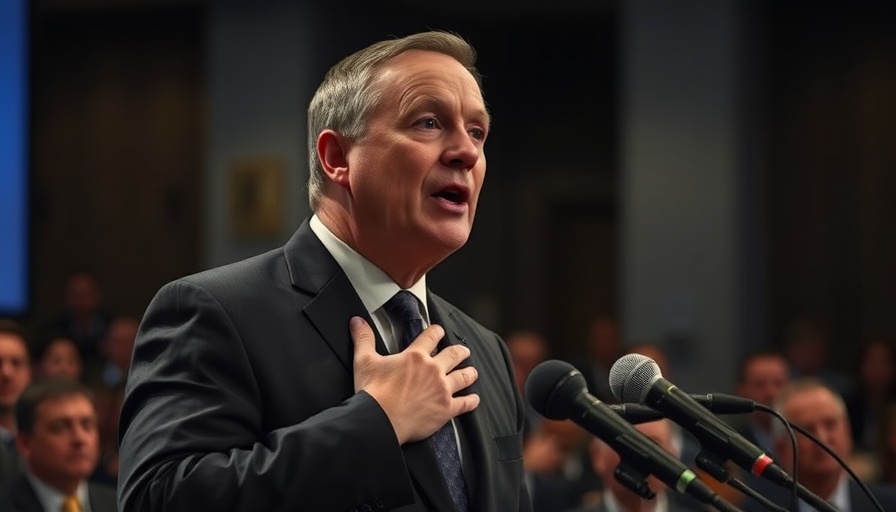
Venezuelan Leadership Reacts to U.S. Military Action
Venezuelan President Nicolás Maduro has voiced strong objections to the recent deployment of three U.S. Aegis guided-missile destroyers near his country's coast, branding the military maneuvers as an "illegal" attempt at regime change. In light of escalating conflict and concerns over Venezuela's internal politics, this military presence has ignited new fears regarding U.S. intentions in the region.
Context: U.S. Deployment Linked to Latin American Drug War
The strategic positioning of the U.S. destroyers is part of a broader effort, as stated by U.S. officials, to combat threats posed by drug cartels operating in Latin America. This move follows President Trump’s recent actions, which include a hefty $50 million bounty for Maduro's capture amid accusations of drug trafficking through a network known as "The Cartel de los Soles." Given that Maduro's presidency is regarded by many as illegitimate due to claims of election fraud, critics suggest that his accusations against the U.S. may be a diversion from his government's challenges.
The Reaction from Venezuela: Mobilization of Forces
In response to this perceived threat, Maduro announced the mobilization of 4.5 million militia members across Venezuela, asserting that the impending presence of U.S. warships represents a violation of international law and an act of aggression not just against Venezuela, but against Latin American countries as a whole. He stated, "Anyone who commits an act of aggression against a country in Latin America is attacking all countries," highlighting a sentiment that resonates with several of his political allies throughout the region.
Broader Implications: The Intersection of Security and Sovereignty
The deployment of U.S. military assets is often controversial, especially in regions historically sensitive to foreign military influence. Maduro's framing of the issue illustrates a common narrative in Latin America—one that intertwines national sovereignty with the effects of narcotrafficking and international politics. As countries grapple with their security vulnerabilities, local leaders often invoke the threat of external military intervention to unify domestic opposition.
Potential Consequences: Escalation of Tensions in Latin America
With tensions mounting, questions linger regarding the next steps. How will the international community respond to Maduro's claims? Analysts predict a potential escalation in rhetoric that could lead to increased military readiness on both sides. The Venezuelan government's portrayal of the U.S. military as a terrorist force may galvanize nationalist sentiments, but it could also provoke further sanctions or military actions, leading to unintended consequences.
Public Sentiment: Divided Views on U.S. Intervention
Within Venezuela and the wider Latin American region, public opinion regarding U.S. intervention is polarized. Some view U.S. military presence as a necessary measure against drug trafficking, while others perceive it as imperial overreach. In this context, Maduro’s claims seem to resonate with those who feel threatened by foreign interference, thereby solidifying his position among supporters who advocate for national sovereignty.
Conclusion: The Stakes for Venezuela and the Region
As the situation unfolds, the stakes for Venezuela and its neighbors remain high. These developments not only affect internal governance in Venezuela but also reflect deeper geopolitical tensions that have potential ripple effects across Latin America. The deployment of military assets demonstrates a willingness from the U.S. to assert itself in the region, raising questions about the balance between intervention and respect for national sovereignty.
Have a story to share or want to contact us for more details? Drop us an email at team@kansascitythrive.com.
 Add Row
Add Row  Add
Add 





Write A Comment